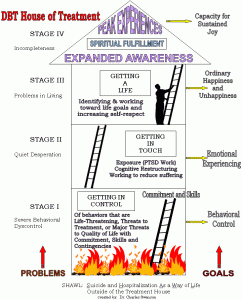Imagine this: You come home from work, your teen is sitting at the table. Her homework’s not done, and you start to get irritated. She slams her books, gets mad and walks out of the room. You follow her and ask her what’s going on. This isn’t like her, she’s a good kid but she’s been down lately. She’s crying and says she doesn’t know what’s wrong. But she doesn’t stop crying and things aren’t getting better. I hear stories like this every day, all the time. Sometimes it’s the teen that needs someone to talk to, sometimes the parents, or sometimes it’s the parents who need to know how to talk to their child. But they all have one thing in common- there’s a challenge. There’s something that could be better, and you know life would be so much better, if not for ___.
I’m going to tell you a secret. It’s something you know, but you need to hear.
It’s going to be okay.
No, seriously, it is.
Let that sink in for a moment. Things are going to be okay.
No, I don’t have a miracle pills. Or miracle theories. But, I have tools. Lots and lots of tools. And one of them I learned about is called DBT.
I sometimes moonlight as a group counselor at a psych (in-patient) facility. Recently, it switched over to a new theoretical orientation. Now, most therapists I know work from what is called CBT, or Cognitive Behavioral Therapy. It ties in what you’re thinking to what you’re doing. A few years ago, a new theory emerged called DBT- Dialectical Behavioral Training. It’s… kinda similar. It’s very core stresses “mindfulness”, a now oft-overused phrase meaning to be aware of within and without. So, it’s being aware of your emotions, your breath, your environment and the way you communicate.
DBT is like any theory, building a house with a foundation of strong “self awareness” skills and crisis management. This would actually be the basement, because it here where people are stuck in their dark and scary places. And let’s be honest? Most basements have a component of creep in them. Then you build the first floor with skills for managing life, problems and challenges. This is where we learn about validation. And I gotta tell ya, this is my favorite part of DBT. This is where we learn about empathy, how to communicate, and how we learn to stop hating ourselves. The second floor is where we learn to be happy, to stop struggling and exist in the moment. It too includes skills for mindfulness but the focus is more about loving ourselves, and working towards goals.
This is the basics. Easy enough, right?
Stay tuned, the next post will be on how to escape the basement.






